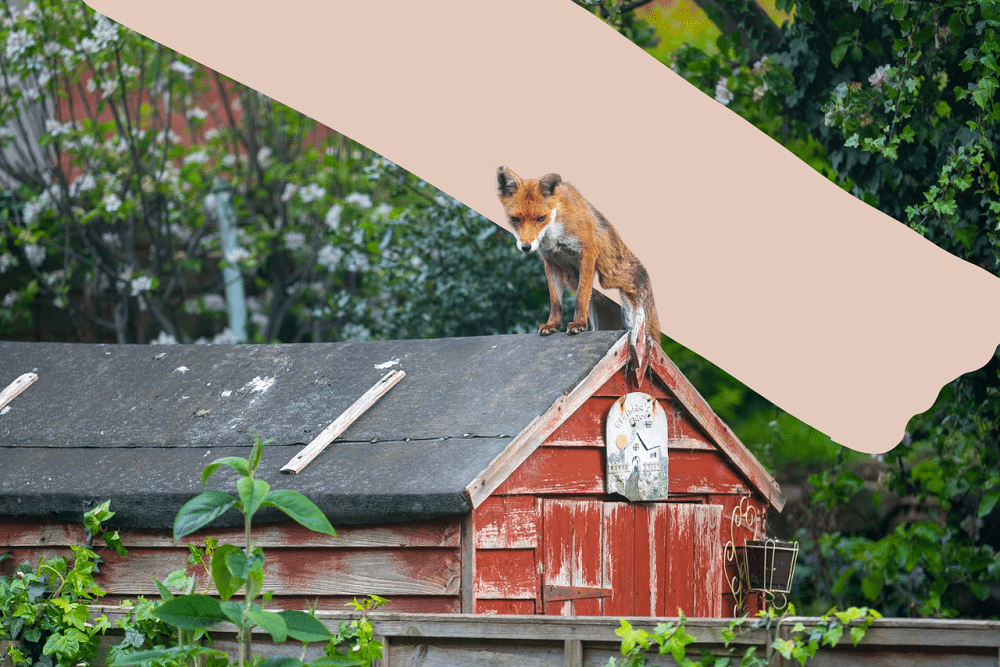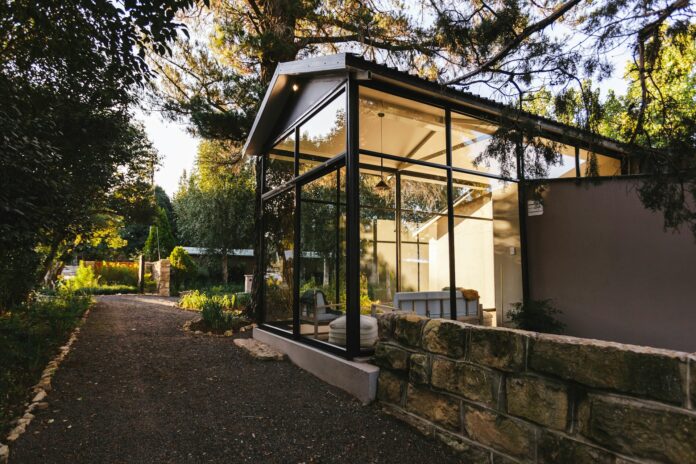Hey, first things first; we’re all for making our gardens more wildlife friendly. In fact, it should be encouraged! But when wildlife friendly turns into animals eating your homegrown lettuce, running riot in your flower beds, ripping up plants and trees and leaving unwanted gifts on your lawn, then it’s only natural to want to take action.
Just make sure that action is natural, environmentally friendly and humane, with these ways to protect your garden from critters, both big and small, this winter.
WHO ARE YOU & WHAT ARE YOU DOING ON MY LAWN?
First things first, you’ve got to identify the critters who are entering your garden and causing havoc before you can arrive at the best way to prevent them from doing so in the future.
The University of Massachusetts Amherst lists the common animals that will stumble upon your garden in search of food — including deer, rabbits and squirrels. Rats are also everywhere (you’re never more than 10 feet from a rat and all that) and are bolder than ever, or so recent reports have suggested.
To identify which pests have been tearing up your lawn, first check out the droppings they’ve left behind. Yep, you heard that right; you’re going to have to get up close and personal with some poo. Whilst we don’t have the time or the stomach to list each animal by their unique faecal characteristics, some common garden visitors and their poo include:
- Rabbits and hares – clusters of small, hard balls, usually yellowy brown or green in colour
- Foxes – pointy at one end and furry all over
- Badgers – usually leave droppings in a self dug, shallow pit. Badger droppings smell sweet and musky
- Deers – smooth, shiny and clustered
- Hedgehogs – roughly 5 cm long, cylindrical and dark
- Rats and mice – a collection of tiny, light brown, slimy droppings that smell like urine
- Squirrels – oblong and relatively thick, compared to the size of the animal itself. Their stool turns white over time
Alternatively, if you don’t feel like examining poo (hey, who does?), then you could set up a simple camera in your garden, motion activated, to capture who exactly is causing the carnage out there.

INSTALL A FENCE
A fence is one of the best ways to keep wild animals from entering your property. The barrier that your fence provides will prevent most types of wildlife from passing through it, and you can choose how high or low you want the fence to be for it to work effectively with keeping out certain-sized creatures.
That said, some garden invaders can dig under the fence or climb on top of it, so this only works for some curious creatures. On the plus side, it’s a totally humane way of mitigating the damage that wildlife might be causing to your garden.
PLACE NETTING OVER YOUR VEGETABLES
Speaking of particularly acrobatic invaders; there’s no way of keeping nimble squirrels out of your garden. However, it is possible to reduce the damage those little critters cause.
Are squirrels digging up all your bulbs? The guys at Squirrel Pest Control tell us that you should place netting over areas where bulbs have been planted to deter squirrels from digging them up. Doing so is a humane way to prevent them pulling up your conscientiously curated flower arrangements or carefully cultivated vegetable patch.
DON’T STOP FEEDING THE BIRDS
Enjoy feeding birds in your garden? We do, too. Unfortunately, bird feed can attract undesirable visitors and fill your garden with vermin – rats, squirrels, pigeons…you name it.
As reported by the Guardian, grey squirrels are stealing millions of pounds of bird seed a year. So how do you outwit these cunning pests? Your best bet is a spring load feeder which shuts off access to the bird feed when an animal like a squirrel or rat steps on it. You can also try greasing the pole to make it harder for rats to climb up; the comical sight of these pests attempting the climb is worth the effort alone!
CONSIDER ADOPTING A PET
There’s no denying that having a pet makes you happy. Research has shown that dog owners have greater self-esteem, tend to be less lonely and are less fearful.
But that’s not all; pets are also useful for keeping critters out of your garden – yet another reason to love them! Your pet’s scent will serve as fair warning to hungry little critters that a predator is nearby. According to zmescience.com, “Cats and dogs working side by side may be the best rodent control method at our disposal’’. Just have to convince the two notorious rivals to get along first, however…

KEEP RUBBISH LOCKED UP
Household rubbish left outdoors, particularly your compost bin, can attract pests like cockroaches, ants, and rodents, with rotting food being particularly aromatic to these pesky creatures.
It’s imperative, then, that you use garbage bins that have tight-fitting lids to keep pests away, perhaps even adding a padlock or latch to these pins to prevent larger animals getting inside and feasting. Go further and regularly wash your bins and the outdoor area where they sit to get rid of spills and debris which are guaranteed to attract pests.
ENCOURAGE THE ‘GOOD’ PESTS
Though not necessarily perceptible to the naked eye, there’s an entire world living in the ground and on the surface of your garden, and it all exists as an ecosystem with self-regulating rules. When bad bugs win, it’s generally because there is a deficit of their natural predators.
So, you can take good care of your garden by helping the good bugs prosper, as they’ll feed on the bad ones, keeping their numbers in check. For instance, ladybugs, parasitic wasps, and many other beneficial bugs reduce pests by feeding on their larvae or even using them in their own process of regeneration.
While the pests you’re keen to eradicate in your garden might be just the right incentive for these good bugs to appear, you should not depend only on that. To sweeten the deal, it’s prudent to offer them plenty of nectar to feed on. Flowers which produce significant nectar and allow these good bugs to feed on it should therefore be a must-have in your garden.
Isn’t it nice to end on a positive note after all that talk about poo?





